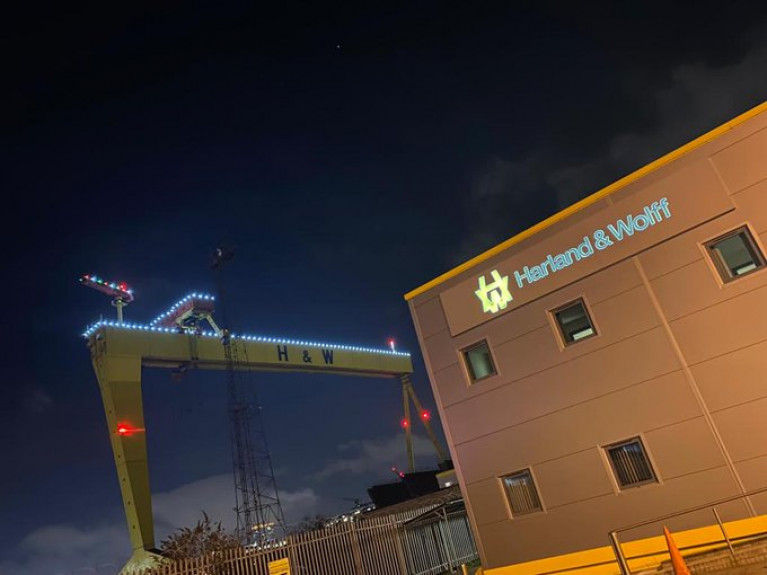Harland & Wolff, the iconic Belfast shipyard with over 160 years of maritime and offshore engineering, has welcomed 13 new apprentices to its flagship site as part of its very first ‘Apprentice Induction Day’.
According to H&W the scheme will run in line and with partnership from Northern Regional College and will see apprentices range from 17 - 28 years old, with a mixture of genders.
The Apprentice Day which was held last Friday, gave the newest recruits a chance to tour the site as well as learn more about the company’s heritage and significance within national and international maritime sectors.
Steven Wright, General Manager at Harland & Wolff (Belfast), who started his career as an H&W apprentice commented: “We are extremely excited to be welcoming our first intake of apprentices to Belfast and to the Harland & Wolff Group. This is a great opportunity to pass on the vast skills, knowledge, and expertise of our current employees to the next generation of marine engineers and shipbuilders.
"As work ramps up throughout the yard and with significant investment towards on-site innovation, it is an incredibly exciting time to join the business. Infamously known as the birthplace of British shipbuilding and maritime excellence, our apprentices will not only gain valuable first-hand industry experience but will be able to continue our proud legacy – all whilst doing so with the backdrop of Samson and Goliath, our iconic gantry cranes.”
Harland & Wolff Apprenticeships are offered across three distinct functions, Trade, (welders, pipefitters, electricians, riggers, fabricators, etc) Technical, (engineers, naval architecture) and Business Support (sales, administration).
Highlights of the unique training programme include practical on-the-job training, one to one mentoring alongside its experienced workforce, shipyard training facilities and the opportunity to earn while you learn.
Harland & Wolff is a multisite fabrication company, operating in the maritime and offshore industry through five markets: commercial, cruise and ferry, defence, oil & gas and renewables and six services: technical services, fabrication and construction, decommissioning, repair and maintenance, in-service support and conversion.
Its Belfast yard is one of Europe’s largest heavy engineering facilities, with deep water access, two of Europe’s largest drydocks, ample quayside and vast fabrication halls.
As a result of the acquisition of Harland & Wolff (Appledore) in August 2020, the company has been able to capitalise on opportunities at both ends of the ship-repair and shipbuilding markets where this will be significant demand.
In February 2021, the company acquired the assets of two Scottish based yards along the east and west coasts. Now known as Harland & Wolff (Methil) and Harland & Wolff (Arnish), these facilities will focus on fabrication work within the renewable, oil and gas and defence sectors.
Harland & Wolff is a wholly-owned subsidiary of InfraStrata plc (AIM: INFA), a London Stock Exchange-listed firm focused on strategic infrastructure projects and physical asset life-cycle management.
In addition to Harland & Wolff, it owns the Islandmagee gas storage project, which is expected to provide 25% of the UK’s natural gas storage capacity and to benefit the Northern Irish economy as a whole when completed.


























































